ho are the indebted: I think not only of the international debt of third world countries, but of the high indebtedness of many European nations, of those who have to become indebted yust in order to send their children to school, of young families seeking a home, of small business people exposed to corruption and usury. And our relation to the land and created goods: I think of consumerism, which can never let consumption rest, which creates needs, which exploits; I think of our lack of respect for nature. These are just some quick flashes which could be deepened in our discussions.
But all of this action is proposed, not as an end in itself, but in order to restore certain relationships in out world, and above all to remind us, as the Pope does, tha in the long term the goods of this world were given to us for the good of humankind and that we are only the stewards of what alwais remains God's own property, He who is the only Lord. These Yubilee prescriptions are proposed to us so that we can identify those burdens hich prevent our brothers and systers from realising the God-given dignity today. We cannot enter the new Millennium without working to see that such conditions are changed and that all can celebrate the anniversary of Chris's birth with new hope in Him and for humanity.H. E. Mgr. Diarmuid MARTIN
Secretary of the Pontifical Council for Justice and Peace Vatican City
I belong to the generation of those Western Europeans born after Yalta and who grew up in the period in which the borders of the European States seemed fixed. It was a generation which knew too little about history and trought that Yugoslavians spoke Yugoslav and Czechoslovakians spoke Czechoslovak! We knew of the persecutions of Communism, but we knew too little about the life of the people who lived in the other part of the continent. We welcomed the idea of opening towards the East. Ostpolitk became a word in our vocabulary, but we were not particularly discerning about what might be its scope and it foundation.
At the same time, we in the West began developing our "Europe", with its institutions. We spoke about moving towards a more united europe, with little attention to the fact we were only considering one part of a much larger continent. To its credit the CCEE was one of those institutions which was unashamedly pan-European from the moment of its foundation, even trough there may have occasionally been some condescending talk that "they" (meaning the Church's under communism) really have "very different problems" or that "they" did not understand our situation.
I remember then the first time that I myself realised the full significance of the way in which Pope John Paul II, right from the beginning of his Pontificate began talking about a very different view of Europe. He spoke of the "two lungs" with which Europe must be permitted to breath. But much more striking was the fact that he was determined to stress that these two lungs belonged to one single person. Europe was one single entity, divided not just by an unjust division, but by an unjust division which must end.
Let us honestly recall that for the political establishment of Europe at the time, West as well as West, to speack of up-turning the agreements of Yalta was considere not yust unrealistic, but outright dangerous. It was to destabilise the attempts underway to ease tension, which was seen as the best, most reasonable, the only realistic policy to follow. Ostpolitk meant at most detente. Even in Germany, where the idea of unification never ceased to be a political and indeed popular goal, there was a growing viewpoint that the unification of Germany would be recognition of the unity of a people, but living in two different political realities.
Pope John Paul II rejected this fatalism wich was enshrined in the Yalta agreements and could very easily have been canonised by the gradual popular acceptance of the structures of a divided Europe. Those who supported the Helsinki process took a calculated and courageous risk. The result could have been the definitive recognition of existing borders and ideologies, with lip-service to human rights, as was clearly the intention of the communist leadership. But, human rights, democracy and freedom are not so easy to manage: like gases, they have a natural, in-built tendency to expand. In the post-Helsinki period, the Church fought hard to achieve, within the context also the Helsinki agreements, to become truly a space of freedom, where people could think independently and express themselves. Where they could encounter God, who created humankind as one family, where they encountered Jesus Christ, who redeemed each person restoring them to the unique dignity given them from the moment of creation.
It is interesting now to look back at now distorted our vision of Europe had become under such a situation. When a Scandinavian fellow student many years ago talked about the natural relationship of Scandinavia to the Baltic States, I had to have a quick look at my map to understand that they way we had intellectually separated Nordic from Baltics was entirely artificial. But that separation was indeed real.
The breakdown of the situation stipulated at Yalta was greeted by great enthusiasm, followed almost immediately by anxiety. Remember the anxiety of many Western leaders about the idea of a united Germany and the still current notion that Yugoslavia should, at all costs, have been kept together. If our knowledge of history had been superficial, then we were in for a "crash course" in the history of Europe. Peoples who had been ignored and suppressed for decades, returned to our cultural horizons. Composite nations broke up, either by consent or by conflict. Indeed, one of the sad paradoxes of the changes that took place in Europe in the early nineties, was the fact that the fall of the walls of ideological division typified by the "cold-war", were accompanied by return real and horrid war to the heart of Europe.
But let us return to the immediate post-Yalta period. Alongside the division that occured, we should not overlook the positive initiatives undertaken by those in Western Europe who, as Pope John Paul II recalled in his Message on the fiftieth anniversary of the Second World War in Europe, had learned the hard lessons of the War. They desired, as the Pope recalled "precisely as a result of reflection on the disasters caused by the Second World War, to forge a common bond between their countries... They understood that in addition to the common good of individual peoples there is a common good of humanity which is trampled on by war. This reflection on a terrible experience convinced them that the interests of any one nation cannot be fittingly pursued except in the context of amicable interdipendence among peoples". The lessons learned from reflection on the fruits of division, of exaggerated nationalism and of the ideology of the State which had created the presuppositions for war, led to the first steps at reconciliation and the construction of the first building blocks for new co-operation among old enemies. The ideals of the wise Christian statesmen who guided Western Europe at that time have yet to be fully realised and consolidated, and they must now be exstended to all of Europe.
In the immediate post-war period, reconstruction was the common goal of all. Cities and infrastructures had to be rebuilt. But above all lives had to be rebuilt and new lives had to be given the chance of a different and a better world. The post-war year saw the emergence of the concept of the "welfare state", the caring State. Yes, a welfare States could lead to the creation of a climate of dependence. But in its essence it is a powerful example of how a poor Europe found a way to share the high costs of solidarity and social protection, especially of the weakest, in a complex world, alongside many other urgent needs. The Europe of the future, a financially strong Europe, must be no less creative in finding sustainable structures for the protection of its weakest and most vulnerable citizens.
It is interesting to recall that the immediate post-war period of reconstruction, of generosity and hope was accompanied by a "baby boom". One could ask if the babies of this period, the men and women who today hold the destiny of Europe in their hands have maintained this same spirit of forward looking generosity? Wealth can generate indifference. Consumerism can satisfy the needs of the day, but may leave a vacuum of hope.
The post-war period was also the period of the Marshall Plan, of the concept that massive investment in people was possible, even essential not alone the progress of Europe, but for the prosperity of all. The World Bank was also founded at the same period of a Bank for Reconstruction and Development, primarily as an international institution to support the reconstruction of Europe. Europe today should take a leading role in the area of international solidarity. Europe, above all Western Europe, owes its current strength in no insignificant part to the extraordinary - and the extremely well utilised - solidarity of the post-war international community. The economic strength and social cohesion which ha s been a positive result from the process of European integration brings with it new responsibilities towards the poorest countries. But today, European countries are cutting back on their aid budgets. We need a new international consensus on the value of international cooperation for solidarity and on the ways to best utilise such funds.
The European Union and its Member States stand to gain substantially, for example, from investments which will accrue as the EURO becomes a reserve currency for many nations, alongside the dollar and the yen. The private sector in Europe will be able to participate within the global market using a strong and stable currency and thus with greater protection from possible fluctuations of other major currencies. What new responsibilities will that bringwith it? Clearly certain decisions which will be taken uniterally by the European monetary authorities will have serious effects on other countries, especially on the poorest. Just think of the effects that interest-rate fluctuations have on the external debt situation of the poorest countries. A true sense of global solidarity would require the elaboration of preventive agreements among major economies in order to establish desirable practices between EMU countries and the poorest countries. It should not be beyond the ability of the European monetary authorities to embark, from the outset, on innovative models of economic co-operation based on solidarity among nations, rich and poor. This would indeed reflect more authentically the spirit of the founders of the original European ideal, who did not envisage Europe as a fortress or as an isolated, defensive block of wealthy nations.
Even more important, perhaps, is to ensure that economic growth does not become the primary inspiration of the new Europe. Certainly, social progress requires sustained economic growth. But the economic must not become the dominant. In the rush to the countdown to the introduction of the Monetary Uni on, certain basic social interests - icluding policies of international solidarity - have been put on the back burner in a number of European countries. It is to be hoped that this is only a temporary measure. But temporary measures have the habit of instutionalising themselves.
Pope John Paul II noted in his Encyclical Centesimus Annus that whereas "the free market is the most effective instument for utilising resources and effectively responding to needs" there are "many human needs which find no place on the market". We will have to find ways of ensuring that also Europe-wide and beyond these human needs, especially in the domain of social policy, are adequately addressed in the new complex and changing relationships between governments, international structures, the private sector and civil society. The private sector stands to gain most in the new economic structures of a globalized economy. With such advantage must come new responsibilities. Transnational European interests exist already today, just as Europe itself exists in a context where it must share responsibility for certain global common interests. Unfortunately the structures needed to guarantee transnational social interests are only at an embryonic stage and are worked-out very much in the context of negotiations between States, which tend all too often to be protective of national interests. Even where rules-based systems of co-operation exist they are not always applied with equity. The law of the strongest too often prevails, with regard to negotiating strength, to capacity and resources. Europe needs a new and strong ethical and juridical framework within which to situate the market and to guarantee the integration of the social into its own structures.
However with all our emphasis and our hopes for great European integration, with all the undoubted progress that has been made, Europe remains divided and wounded. The division in Europe is linked today to the question of striking inequali ties in our societies. Poverty is about people who are not able to realise their God-given capacities. It is about the distinction between those who manage to cope in today's world and those do not manage to cope. The unskilled, the unemployed, the weak, minorities will more and more be the long term excluded in our societies. At the same time, there is a growing phenomenon of extreme wealth in today's Europe, alongside poverty, lack of access to essential services and poor quality services for the poor.
Europe is wounded through festering conflicts. Conflict and tension in any one part of Europe challenge the stability and the peace of all of Europe. I quote from a Papal text: "It will be more difficult, if not impossible, for peace to ensure between peoples and States, if in place of true and genuine love of country there reigns a selfish and intransigent nationalism, that is to say, hatred and jealousy in place of the common desire of the good, distrust and suspicion in place of fraternal trust, competition and strife in place of respect and protection of all rights, including those of the weak and the small". I said a papal text. It is from the address to the Roman Curia made by Pius XI on 24 December 1930.
Seventy years later, as we approach the Great Jubilee Year of 2000 these words are exceptionally relevant. The common desire for the good, respect for the right of the weak and the small and harmonious cooperation must be the marks of the Europe of the Year 2000. In the years since the collapse of the Yalta agreements we wave come to recognise the right to self determination of peoples, even to the point of recognising new nations cares Europe. This is a valid process.
But it will only become a lasting principle in the manner in the which we recognise that nationhood is a limited value, and that the only hope for the future is the possibility of nations and peoples living together in harmony and justice. The striving for an ethnically pure State is a rejection of God's design that all, individuals and peoples, belong to one human family. So also, is the suppression of the legitimate desire of peoples to be able to express their legitimate diversity wherever they find thelmselves, especially when they constitute a minority. Rejection of immigrants is also very often inspired by similar sentiments, and may I say even doctrines.
Believers are called in a special way to be the prophets of the unity of all humankind. They must be the ones who can rise above the sectarian, the narrowly local or national. Europe still today has conflicts marked by divisions among different religious adherents. The persistent divisions among Christians remains one of the great shames of the Millennium which is drawing to a close.
The social, about which we speak in the title of the Meeting and in the title of our commissions, refers not only to specific social policies. It deals with the vision of society which we propose for the future. And here we could take up the Jubilee vision as set out in Ns. 13 and 14 of Tertio Millennio Adveniente which recalls the Old Testament notion of restoring equity and harmony to human relations and to relations with creation, in accordance with God's original plan.
The Jubilee sought to bring freedom to those in slavery and indebtedness, to allow the land to rest. What do these categories mean today for our society. Who today is enslaved and exploited: I think of the abuse of children, in Europe or perhaps far away producing cheap goods for the European market; I think of the situation of women; I think of working conditions and the ability of workers to organise for better conditions and the ability of workers to organise for better conditions in a liberal economy; I think of the exploitation of those who are cynically classified as "commercial sex workers"; I think of the conditions in our prisons. W









